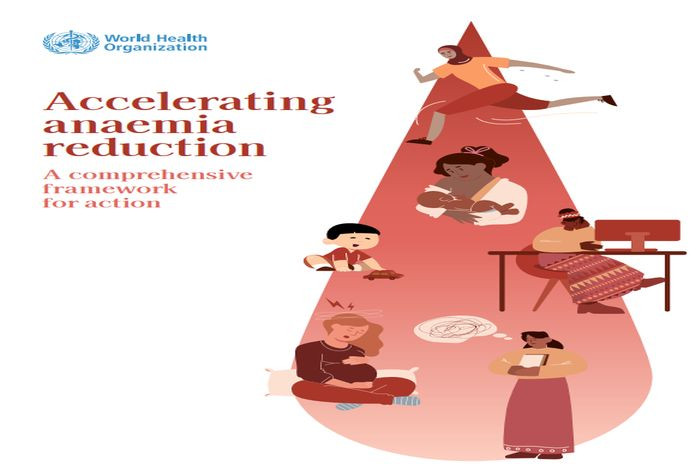GENEVA, Switzerland – World Health Organization (WHO) launches its first-ever comprehensive framework on reducing anaemia, calling on countries to accelerate action to halve anaemia prevalence in women of reproductive age by 2025.
Progress on reducing anaemia has been slow and the world is not on track to reach the global target. Anaemia is a serious global public health problem, affecting 571 million women and 269 million young children worldwide.
In 2019, anaemia affected 40 percent of children between 6 months and 5 years of age, 37 percent of pregnant women and 30 percent of women 15–49 years of age. It is most prevalent in low- and middle-income countries.
Anaemia increases the risk of infections and death, impairs cognitive performance, and causes extreme fatigue, poor pregnancy outcomes, loss of earnings, and poor growth and development. It is a strong indicator of overall health.
“Most work on addressing anaemia has been focused on the prevention and treatment of iron deficiency,” says Francesco Branca, director of WHO’s department of nutrition and food safety. “However, anaemia is a complex condition with multiple causes – including other nutritional deficiencies, infections, inflammation, gynaecological and obstetric conditions, and inherited red blood cell disorders.” All must be addressed to effectively prevent and treat anaemia.
The new framework sets forth ways to address the direct causes, risk factors and broad social inequities that are fundamental drivers for anaemia. It describes the necessarily comprehensive approach that brings together multiple sectors and actors, and lays out key action areas to improve the coverage and uptake of interventions
Acknowledging that health remains the predominant sector for delivering many of the recommended interventions, the framework also proposes actions that other societal stakeholders can take. These include governments, civil society, academia, researchers, funding agencies, international organizations and media. Each has its particular role to perform in reducing anaemia and keeping people healthy.
The framework is launched during the International Maternal Newborn Health Conference.





